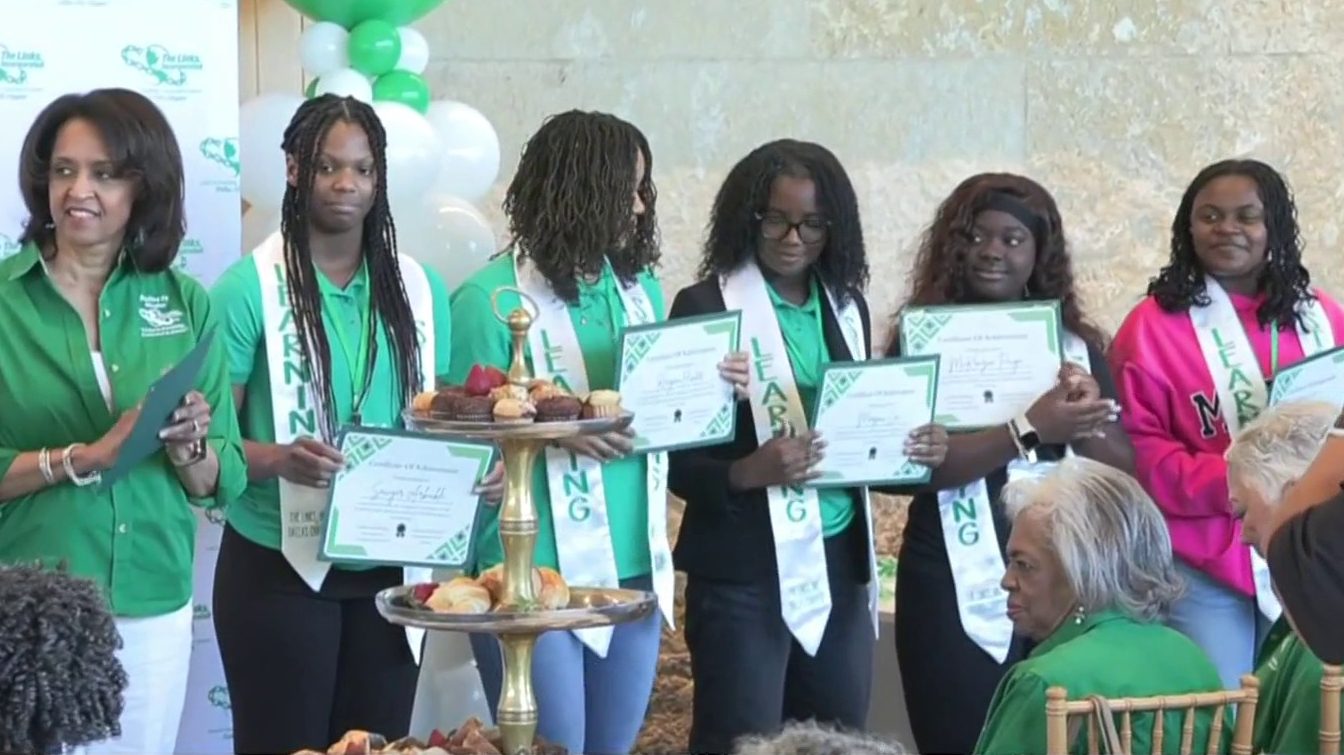NBC 5 is partnering with The Dallas Morning News, KERA and Telemundo 39 to produce in-depth reports about the race for Texas governor. We asked our viewers, readers and listeners to vote on the topics most important to them. For five days, we will report in-depth on each of those topics: education, immigration, health care, economy and infrastructure.
The first report is on education. Click here to see our report on Texas Attorney General Greg Abbott.
State Sen. Wendy Davis said improving public schools is one of her biggest priorities.
Davis said she's been fighting for better schools ever since she got into politics nearly 20 years ago, and if elected governor, she said she will implement an ambitious plan to improve Texas schools.
Recent TV commercials show Davis talking with teachers and reading to kids. The ads are intended to drive home the point that Davis will fight for parents.
"As governor I will make the education of our children a priority and I will fight to make sure that our schools have more resources not less," she said in the Sept. 19 debate in McAllen.
Her plan calls for full day prekindergarten for every child in Texas. She has said that her universal pre-K plan will be on a sliding scale — free for low-income families, while upper-income families would have to pay something.
Local
The latest news from around North Texas.
Davis said she's had enough of what she calls high-pressure, seemingly never-ending standardized tests.
She helped pass a law that reduced the number of them that high school students take from 15 to five.
"It's now time for us to decrease those pressures in middle and lower school grades as well," she said during the Sept. 30 debate in Dallas.
"I have never had a parent tell me that they think we need more standardized tests, not less," she added.
Davis said she believes standardized tests are important in measuring student success, but too many tests — and weighing them too heavily in evaluating teachers — is a negative.
"It is important to make sure that we’re measuring student performance, but that we’re not discouraging good teachers from going into classrooms that will be helping the most challenging of students," she said.
Davis also plans on increasing increase teacher pay and per-pupil spending, both of which are below national averages.
One of Davis's goals is to make easier for teenagers to attend college. She wants more financial aid opportunities for students to go to state colleges.
"In Texas, no student who is seeking an education and qualifies for financial aid should be denied," she told a San Antonio audience in August.
She wants to make it easier for teenagers to earn college credit while still in high school by doubling what is known as "dual credit" options.
"Those are my goals, and within existing resources that we have available to us as a state, we can make all of those things possible," she said in a recent interview with NBC 5.
It's possible, but Davis isn't saying how expensive it'll be.
During the Dallas debate, NBC 5 anchor Brian Curtis asked her three separate times for the price tag on her education platform.
"Senator Davis, what is the price tag for your education plans? Please give us a dollar amount. And where would you find that money?" Curtis asked.
"Brian, I was proud in 2011 to filibuster $5.4 billion in cuts to our public schools, cuts that my opponent has been fighting in court to keep in place ever since," she responded.
"So no dollar amount?" he later asked.
"As I said Brian, this is a vision that will be set for the legislature," she said.
She said her plan can be implemented without raising taxes, insisting that the money can be found "within existing resources."
"When we come back into legislative session, we'll have a $5 billion surplus in revenues," she told NBC 5. "I will advocate that the use of those revenues most important priority will be restore appropriate funding to our schools."
NBC 5 and The Dallas Morning News have been able to approximate the cost of some parts of her education vision.
In an interview with The Dallas Morning News last month, Davis estimated that her universal pre-K plan would cost around $700 million. And because Texas teachers earn about $8,000 less than the national average, the newspaper estimated the cost of bringing that up to scale at about a billion dollars.
"Educating our children is about creating jobs of tomorrow and strengthening our economy for decades to come," she said in San Antonio.
Texas ranks 46th in the nation when it comes to the amount of money we spend on each student, about $9,000. The national average is $11,000 per pupil.
In fact, Texas spends about $500 less per student than it did just a few years ago. Davis said that's unacceptable.
"That comes at a price, but the question to ask is: 'What price do we pay as a state if we don’t?'" she said.
CLICK HERE for a special 5 Days in October section from The Dallas Morning News.



